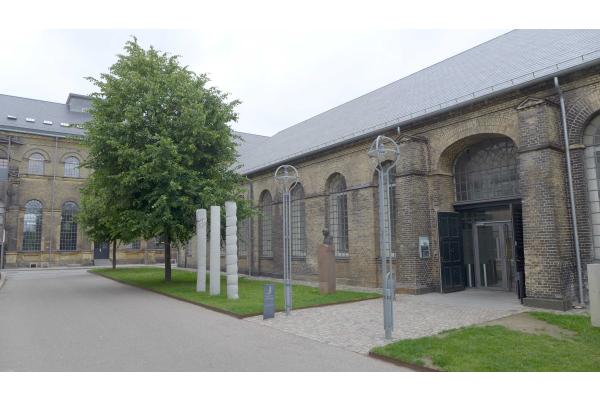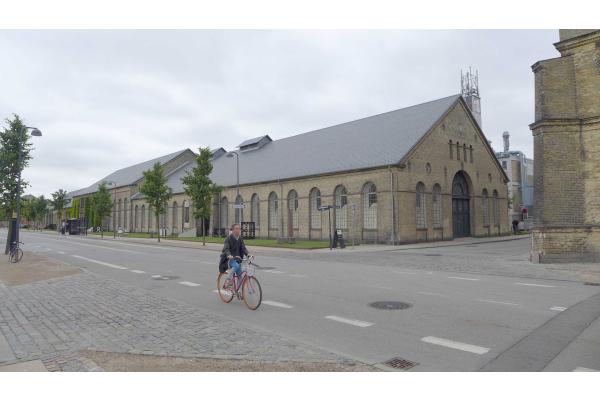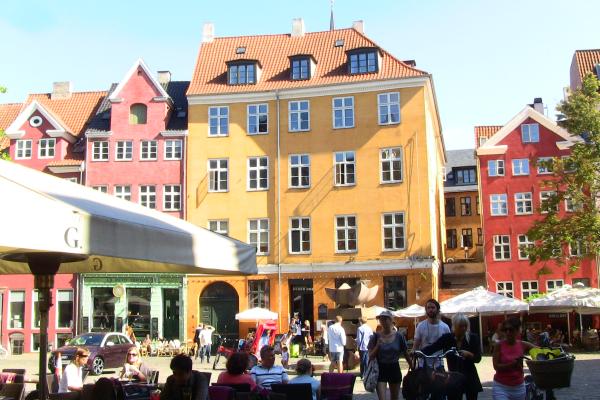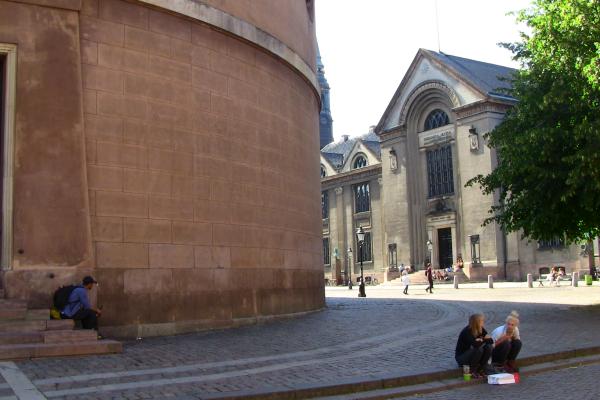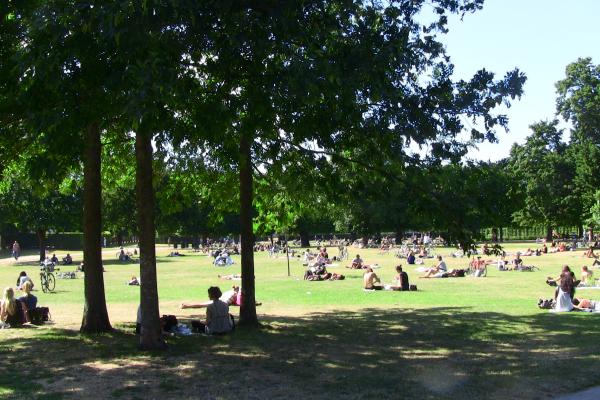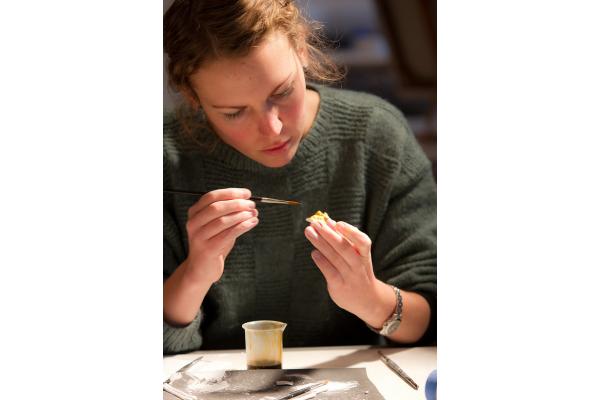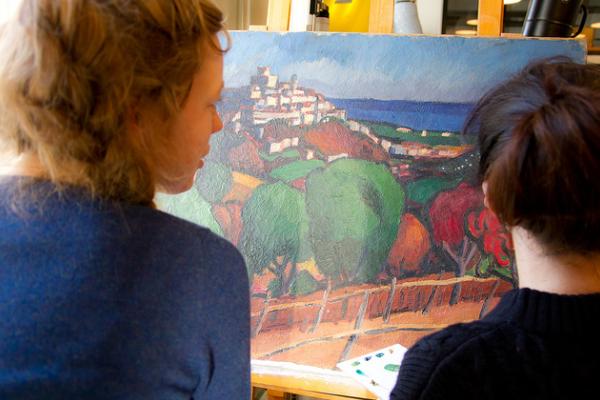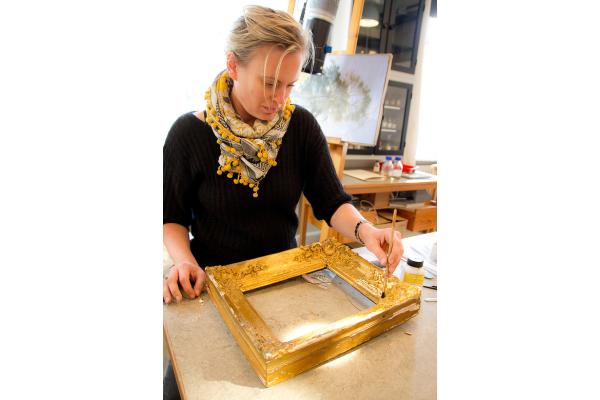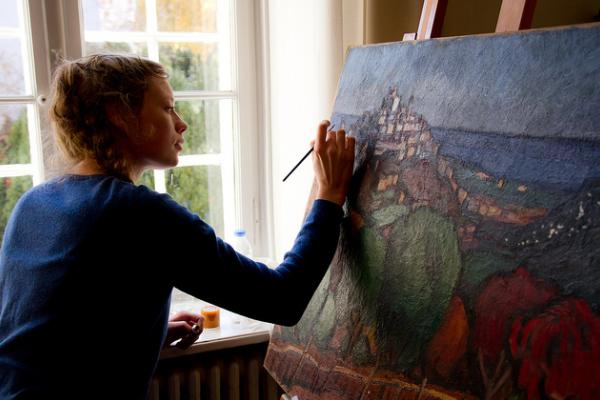IIC S&ECC - 2013 Copenhagen
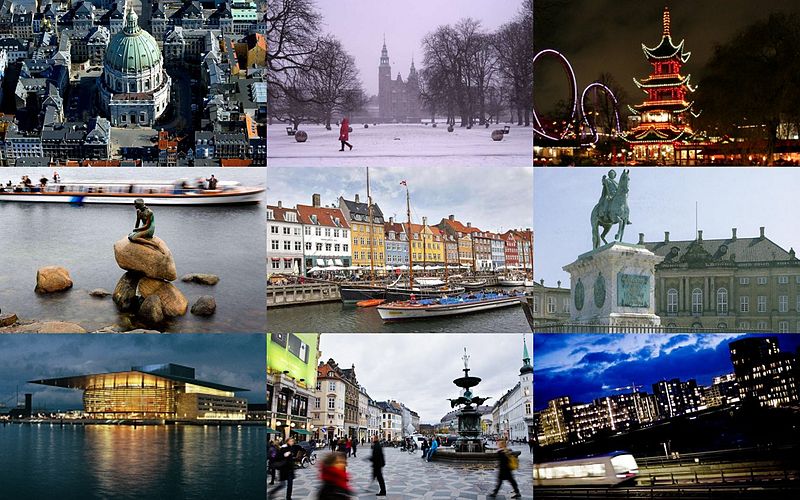
Wednesday, 11 September, 2013 - 23:00 to Thursday, 12 September, 2013 - 23:00
Place: Copenhagen, Denmark
Following on from the successful 2011 London Student & Emerging Conservator Conference IIC’s second Student & Emerging Conservator Conference was held in Copenhagen on the 12th & 13th September 2013.
Conference Themes
Developing the ideas raised in London, and looking at other isues of current concern, this event focused on three areas
- national vs. international conservation work and conservation study and the language(s) used in conservation
- presenting oneself to others
- making the most of your skills and networking.
As with the London conference, this event aimed to offer an international perspective and to facilitate communication between student/emerging conservators on the one hand, and professionals active in the field of conservation, in national institutions and museums as well as in the private sector. The conference aimed to create a platform where the discussion of current needs in conservation and the relationship between expectations and reality could be discussed.
The Conference had the support of KADK (the Schools of Architecture, Design and Conservation School of the Royal Danish Academy of Fine Arts, Copenhagen) and was held at their central Copenhagen site. We were also delighted to be working with a number of additional partners.
Studio Visits
The themes discussed were supported by organised visits to some of central Copenhagen’s major conservation studios, both at cultural institutions and conservation businesses.
The presentations were held in the form of collaborative Web Broadcasts, which allowed an international community of speakers and participants to join the conference, both in person or online. There was also dialogue between the speakers and the audience, including those attending via the web. Conservation professionals active in the private sector as well as in museums/institutions discussed their experience and addressed the concerns raised, giving their views on the future of the profession, and the evolution of conservators’ responsibilities. Experienced conservators addressed the issues of presentation skills, portfolio creation and use and language skills, as well as getting started in a career and the international aspects of conservation work.
The conference provided an excellent platform for the exchange of ideas among those studying conservation, archaeology, art history, heritage studies and related disciplines, people who were soon to share the professional responsibility for a wide array of heritage-related issues.
Programme
The themes for the event were matters of current concern to all who were studying or starting out in their conservation careers:
1. Education and Employment Across Borders
Conservation is a small field and collaboration across borders is therefore essential to broaden ones work experience and strengthen ones professionalism. Globalisation has meant that it has become easier to find training and work placements abroad, which can also start conservators on an international career.
a) What advantages and disadvantages are associated with attending conservation training courses at institutions in other countries? The network acquired in this way during one’s training can greatly influence later work options. However, does an international education always benefit the student and does it lead to a loss of potential conservation work in the student’s country of origin?
b) Internationalisation also requires linguistic and cultural adaptation for the student – at ones educational institution, ones work place and to enable the discussion of conservation matters in other countries How do students whose first language is not English, for example, fare in comparison to native English speakers in regard to training and work abroad? Conversely, how are English speakers received in countries where English is not the first language?
c) How should links across linguistic, cultural and national borders be enhanced? Should we aim to some degree of commonality across borders? How do the efforts to create standardisation in conservation education/terminology help us students/emerging professionals/the field? How does this help skills transfer from one place to the next and skills develop within a person?
2. Presenting Oneself in a Professional Context
In the pursuit of a professional career a student must learn to promote him or herself by presenting work experience and study to a potential employer or institution (e.g. students seeking work placements either at home or abroad, or applying for a local or an international training programme). It has become increasingly common to present oneself with the help of a portfolio, in print and online versions. What constitutes a good portfolio? How should one be designed / appear? What should a portfolio include and for what reasons? How can the student’s educational institution prepare the student for this challenge? Should the student have versions of this in a number of languages?
3. Optimising Skills and Networking - locally and further afield
In addition to applying for work, how can the newly trained conservator become better involved within the Nordic conservation field in order to strengthen his or her qualifications and experience and build a professional network? How does one become engaged in the field of conservation? What are the advantages of this sort of involvement? How does this differ from the situation elsewhere? How does the newly-trained conservator become engaged with issues?
Transcripts
![]() Transcript of Session 1, 2013 Copenhagen S&ECC ©IIC
Transcript of Session 1, 2013 Copenhagen S&ECC ©IIC
![]() Transcript of Session 2, 2013 Copenhagen S&ECC ©IIC
Transcript of Session 2, 2013 Copenhagen S&ECC ©IIC
![]() Transcript of Session 3, 2013 Copenhagen S&ECC ©IIC
Transcript of Session 3, 2013 Copenhagen S&ECC ©IIC
Conference Organising Committee
Mikkel Scharff - IIC and KADK
Heidi Børsting - KADK
Marie Christiansen - KADK
Mette Fald - KADK
Charlotte Graminius- KADK
Tora Hederus - KADK
Lea Jensen- KADK
Jo Kirby Atkinson - IIC
Amber Kerr - Smithsonian American Art Museum & IIC
Adam M Klupś - IIC & UCL
Graham Voce - IIC
Supporting and Partner and Sponsoring Organisation
The conference had the support of of KADK (the Schools of Architecture, Design and Conservation School of the Royal Danish Academy of Fine Arts, Copenhagen) and we were delighted to acknowledge their assistance in the running of this event.
IIC was delighted to acknowledge the support and involvement of a number of organisations in the operation and resourcing of the 2013 Student and Emerging Conservator Conference in Copenhagen. Their involvement and help made the event much more effective and allowed greater engagement with the conservation community. Our partners are the Royal Danish Academy of Fine Arts / School of Conservation, Tru Vue, WS Maney & Sons Ltd , Conservation by Design and Kremer Pigmente.
Session 1: EDUCATION AND EMPLOYMENT ACROSS BORDERS
OPTIMISING SKILLS AND NETWORKING - LOCALLY AND FURTHER AFIELD
Session 2: PRESENTING ONESELF IN A PROFESSIONAL CONTEXT
